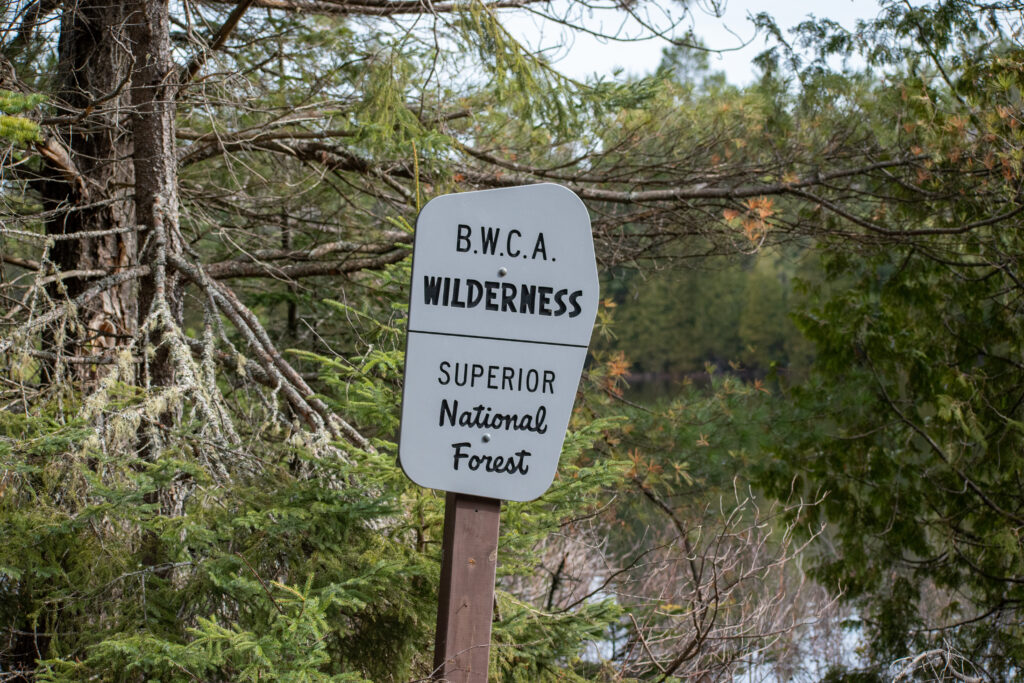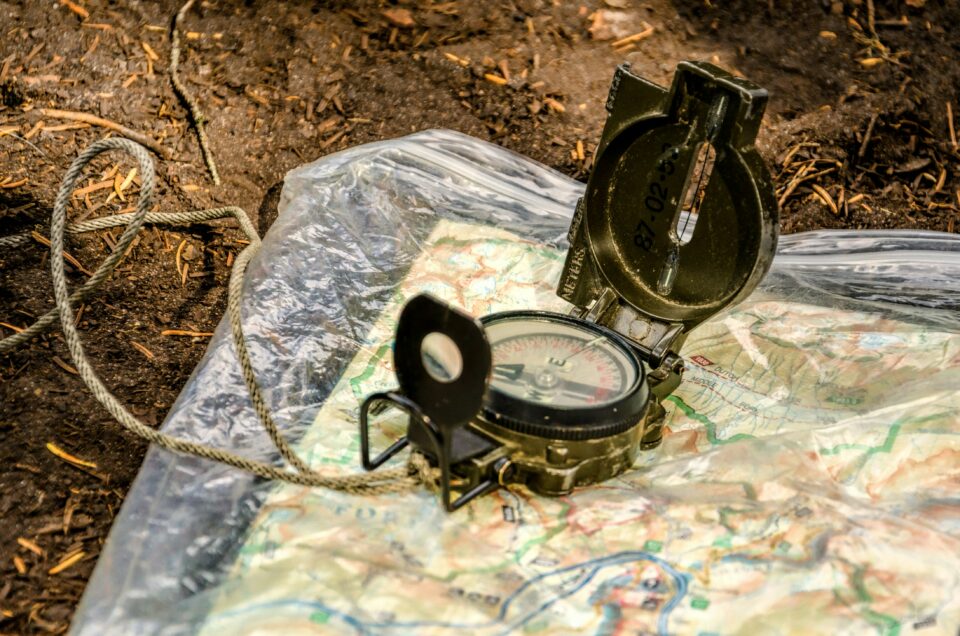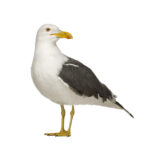In an age of satellite messenger devices, hiking navigation apps, and smartphones, using a map and compass might seem like an old-fashioned approach when venturing outdoors.
However, those reliable, old-fashioned tools—and the knowledge of how to use them—remain the best resource for navigating unfamiliar terrain or finding your way when lost in the woods.
At its core, orienteering is the skill of using a map and compass to determine one’s location and navigate to a desired destination. It’s an invaluable skill that many Boy Scouts learned at a young age, and it remains a skill taught in outdoor and college classrooms. Furthermore, orienteering involves problem-solving, situational awareness, and the ability to minimize risk.
For many individuals, navigating from point A to point B is not only a wilderness survival skill but a practical daily life skill. Whether traveling up the North Shore along Highway 61 or running errands in town, it requires an individual to navigate effectively and make informed decisions in a timely manner.
And the same applies when recreating and orienteering in the outdoors.
Whether canoeing in the Boundary Waters Canoe Area (BWCA), foraging for mushrooms, or hunting in the remote northern Minnesota landscape, individuals need to plan their routes carefully, understand their surroundings, and assess potential hazards. By doing so, individuals can ensure their safety and have an enjoyable outdoor adventure.

The first step in orienteering begins well before the boots are laced and the backpack is loaded into the vehicle. One of the situational awareness components of orienteering occurs before the adventure begins.
Individuals should plan a route before heading into the woods and familiarize themselves with the terrain’s topography. Depending on the extent of the backcountry trip, this step may take 30 minutes or a few hours. Before heading into the wilderness, it is important to understand what the landscape will look like and how easy or difficult it will be to traverse.
A large swath of the northern Minnesota landscape has unreliable or nonexistent cell service. Even though individuals may study Google Maps for hours and feel confident about their charted route on All Trails, Avenza Maps, or Onx, it is crucial not to rely solely on a device that has limited coverage or battery life. As many who have spent time in the woods know, the outdoors is often unpredictable. Even though the downloaded offline maps are quite handy, it only takes one small unfortunate mishap to lose or damage the handheld lifeline needed to find your way home.
And that’s where a trusty old map and compass stashed in the backpack come into play.
While technology can certainly enhance various aspects of an outdoor experience, it should always serve as a complement rather than a primary reliance. Relying on technology for navigation can undermine the essential critical thinking skills needed to orient yourself and survive in the outdoors if something goes wrong.
Critical thinking and situational awareness skills are crucial in the outdoors, where conditions can change rapidly and help is often far away. Without the ability to read a map, use a compass, or interpret the terrain, a minor mishap can escalate into a serious search-and-rescue situation.
If you would like to sharpen your orienteering skills before your next adventure, there are numerous classes along the North Shore available for individuals. The Minnesota Orienteering Club hosts frequent courses and, most recently, partnered with the Minnesota Department of Natural Resources in late August to host an orienteering for fun and survival webinar. If you live closer to a metro area, the nearest REI store frequently hosts orienteering classes. Numerous other resources are available by contacting a nearby survival or bushcraft organization.




